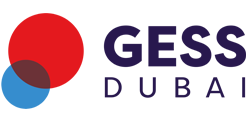Global technology powerhouses to present smart learning tools that will shape future of education in the Arab world at GESS 2013
Middle East eLearning revenues to reach $560 million in 2016
Revenues from sales of eLearning products in the Middle East will reach $560 million in 2016, driven mostly by extensive content digitization efforts, as well as large-scale deployments of tablets and smart learning tools across the education systems throughout the region.
Ambient Insight’s Middle East Market for Self-paced e-Learning Report identifies the most lucrative revenue opportunities for suppliers, such as the thriving private school market and the demand for digital English language learning content. The United Arab Emirates, Kuwait, and Jordan have the highest percentages of private schools in the world at 65%, 46%, and 42%, respectively. Private schools are avid buyers of eLearning content, tools, and platforms.
The broader landscape of technological advances in education will be discussed at length in various keynote presentations that will be made at the Gulf Educational Supplies and Solutions (GESS) exhibition and Global Education Forum (GEF) which begin today and will last until March 7, 2013 at the Dubai World Trade Centre.
Under the patronage of HH Sheikh Mohammed bin Rashid Al Maktoum, Vice-President and Prime Minister of the UAE and Ruler of Dubai, GESS and GEF 2013 will feature experts from technology powerhouses such as Google, Microsoft, Intel and Samsung who will share best practices in adopting smart learning tools for classrooms as well as leveraging technology to help enhance the quality of education in the Arab world.
HE Humaid Mohammed Al Qutami Minister of Education for the UAE will deliver the Opening Address for the region’s biggest and most prestigious educational exhibition, which offers a comprehensive programme of workshops, presentations and panel discussions from world-renowned experts on smart learning tools and technology.
Keynote presenters include Dr Mansoor Al Awar, Chancellor Hamdan Bin Rashid Bin Mohammed e-University, who will speak on Smart Teaching and the University of the Future; John E Davies, Vice President for Intel Corporation, who will present Intel’s World Ahead Programme; Mr Bum-Coo Cho, Senior Vice President (Global), Enterprise Business Team, Samsung Electronics Co Ltd, whose presentation will focus on Samsung’s Smart Education Initiatives.
Meanwhile, Joice Fernandes, Worldwide Senior Director – Public Private Alliances, Microsoft, will present Microsoft’s Shape the Future project; Ross Mahon, Global Awareness Manager, Google Education, will share insights on Learning on the Web; and Dr. Khalifa Al Suwaidi, United Arab Emirates University, will speak on Teacher’s Stress Relievers.
Some of the world’s biggest providers of ICT and e-learning solutions, interactive technologies, scientific and laboratory equipment and a large range of other educational supplies will be showcasing their products and solutions at the exhibition, including a Humanoid Robot from Dubai-based learning specialists Edutech.
“Since 1991, Edutech has been contributing to the creation of a knowledge workforce in the region through a cradle to career concept by implementing a robust array of science, technology, engineering, and math (STEM) solutions. Through a combination of curriculum, hands-on and technology based resources, teacher training and competitions, Edutech’s solutions inculcate the ability to think critically, solve complex problems, and drive advancements in science and technology,” said Samsul Karim, Director, Edutech Middle East, which will showcase solutions in stimulating areas such as Robotics, Green Energy, from Vernier, LEGO Education, PITSCO, SolidWorks, NAO Robotics among others.
“With a wide range of products, live demonstrations and a comprehensive 3-day conference programme, GESS has become the absolutely pivotal event to experience the latest education technologies and solutions in action,” said Matt Thompson, Project Director, F&E Group, organisers of GESS.
Last year, GESS 2012 recorded its highest ever participation by exhibitors, with over 250 businesses and organisations from more than 30 countries. The 5th edition of the event attracted 6,000 key decision makers and ministerial delegations from the UAE, Saudi Arabia, Oman, Qatar, Kuwait and Bahrain. This included a cross section of teachers, heads of department and heads of schools, as well as procurement managers, school owners and bursars. This year, GESS will welcome nearly 300 companies from more than 30 countries.
The full programme of activities for GESS and GEF 2013 is available on www.gesseducation.com. Live updates on proceedings will be made via social media, follow @GESSeducation on Twitter.
Notes to Editors:
Countrywide academic content digitization efforts are underway in most of the countries in the region. Many of these initiatives include the provision of tablets on a national scale. This essentially creates a new delivery platform for suppliers. Several of the initiatives are quite ambitious:
- The goal of Kuwait's "e-education" plan is to deploy eLearning in all schools by 2013. The program deployed learning technology and digital content in 2011 starting with high schools. In 2012, the government began rolling out the eLearning products in the middle schools, elementary schools, and kindergartens, respectively. As of October 2012, all the textbooks in Kuwait were digitized.
- As part of a $1.4 billion initiative, Turkey intends to equip over 15 million students across 40,000 schools with tablets in the next four years, which represents a huge new delivery ecosystem for learning technology suppliers.
- In January 2012, the Supreme Education Council (SEC) in Qatar announced a series of "e-education" initiatives that include digitizing all the content used in the schools and providing each student with a personal learning device by 2014.
- In October 2012, the UAE government indicated that they were on track to get 400 schools equipped with learning platforms by 2015, well ahead of schedule on a project that started in 2010 to deploy learning technology in all 425 state-run public schools. This effectively creates a nationwide delivery platform for suppliers that will reach over 294,000 students.




